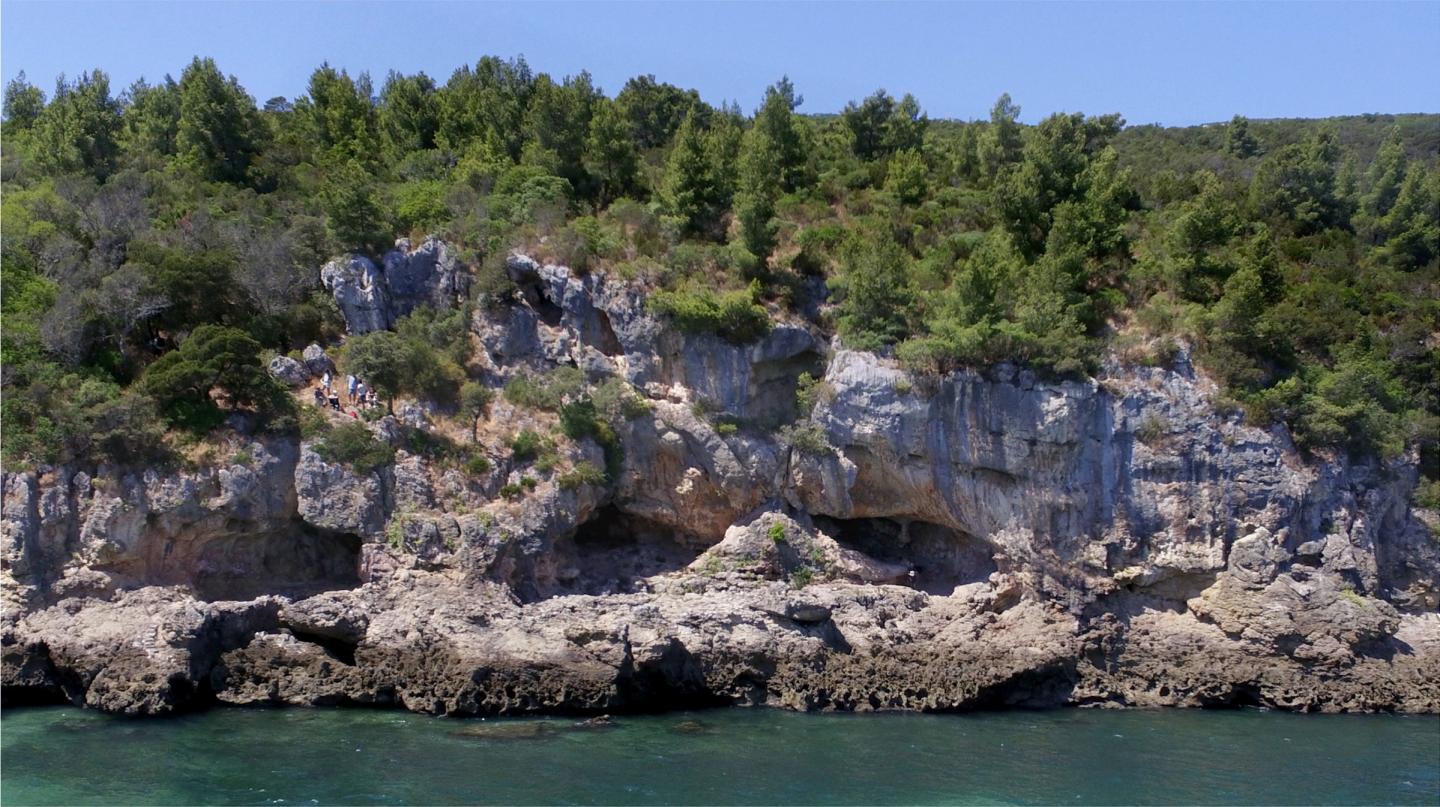Archeological discoveries along the Portuguese coast show that Neanderthals were fine diners who enjoyed roasting crabs and other shellfish over 90,000 years ago. The new study is yet another reminder that our closest cousins were not the knuckleheads they are often depicted as, but an intelligent species that bear many close similarities to us.
Researchers made the discovery at the site of Gruta de Figueira Brava, located within a cave just south of Lisbon. Along with finding a treasure trove of stone tools and charcoal, they also discovered a wealth of shells and bones.
Of all the remains discovered here, brown crabs were the most abundant. By closely studying the patterns of damage on the shells and claws, they ruled out the possibility that the butchered crabs entered the cave due to hungry birds, rodents, or any other animal carnivores.
Furthermore, many of the shells and bones were marked with black burns, which showed they were heated to over 300°C (572°F), indicating they had been roasted for the purpose of eating.

View of the Figueira Brava cave with its three entrances. Image credit: João Zilhão
Altogether, the work showed that Neanderthals would harvest brown crabs in rock pools along the coast, specifically targeting the meatier adults. They would then bring them up the hill and into their cave, where they would be deshelled, roasted, and (no doubt) enjoyed.
The archeological site demonstrates how Neanderthals developed a variety of cultures across the world. Just like Homo Sapiens, Neanderthals developed their own ways of living that were in tune with their surroundings and experiences.
“The notion of the Neanderthals as top-level carnivores living off large herbivores of the steppe-tundra is extremely biased,” Dr Mariana Nabais, lead study author from the Catalan Institute of Human Paleoecology and Social Evolution (IPHES-CERCA), said in a statement.
“Such views may well apply to some extent to the Neanderthal populations of Ice Age Europe’s periglacial belt, but not to those living in the southern peninsulas — and these southern peninsulas are where most of the continent’s humans lived all through the Paleolithic, before, during and after the Neanderthals,” she added
With this bold demonstration of their brain power, this site is also another example of why should shake off old stereotypes about our Neanderthal cousins. Just like us, they were deeply intelligent, creative, and emotionally sensitive.
In fact, the comparisons with modern humans run so deeply that some researchers argue that we shouldn’t think of Neanderthals as separate species to us, but as a mere sub-species.
“Our results add an extra nail to the coffin of the obsolete notion that Neanderthals were primitive cave dwellers who could barely scrape a living off scavenged big-game carcasses,” explained Nabais.
“Together with the associated evidence for the large-scale consumption of limpets, mussels, clams, and a range of fish, our data falsify the notion that marine foods played a major role in the emergence of putatively superior cognitive abilities among early modern human populations of sub-Saharan Africa,” Nabais added.
The new study was published in the journal Frontiers in Environmental Archaeology.
Source Link: Cavern Of Crab Shells Shows Neanderthals Were Fine Diners, Just Like Us